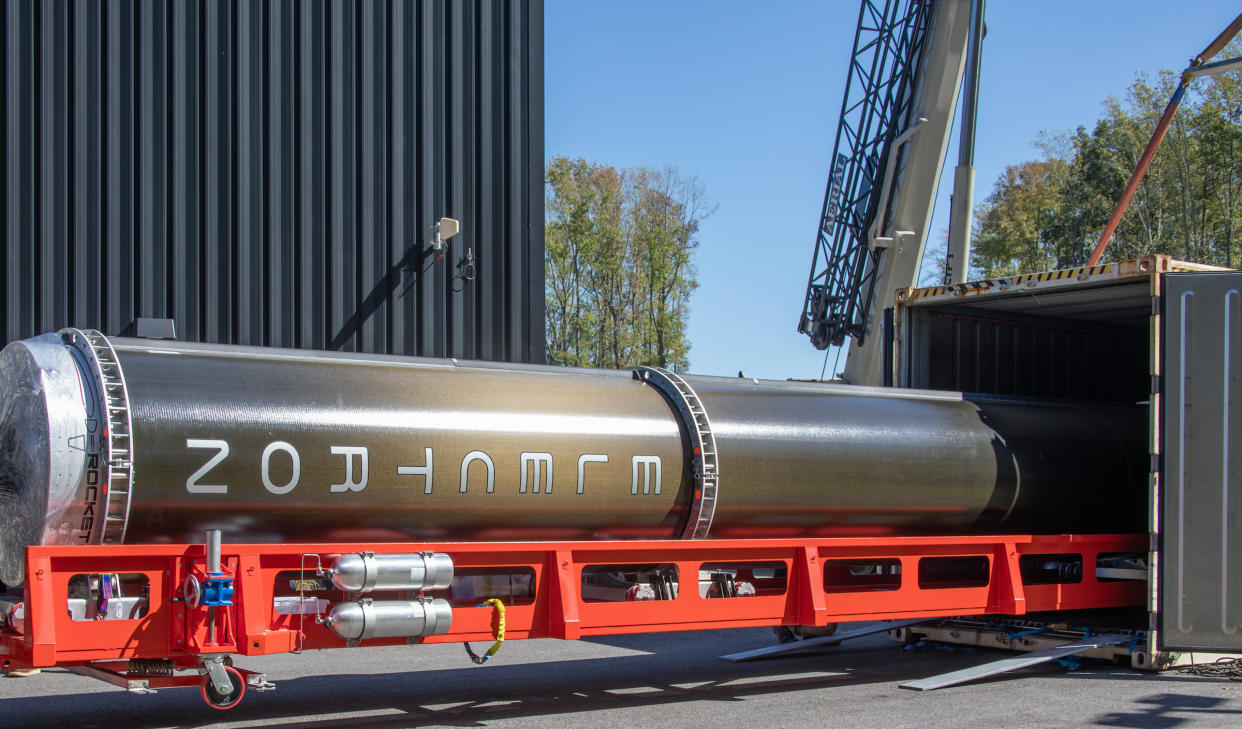Virgin Orbit and Rocket Lab gear up for launches on new continents

Virgin Orbit and Rocket Lab are expanding their launch capacities as each company gears up for inaugural missions from countries that they have never flown from.
For Rocket Lab, that’s the United States; for Virgin, that’s the United Kingdom (which has never seen an orbital launch, ever). Rocket Lab said Wednesday that the Electron rocket arrived at Launch Complex 2 (LC-2) at Wallops Island, Virginia; Virgin’s Cosmic Girl 747 airplane touched down at the Newquay Airport in Cornwall, southwest England, early evening yesterday. Virgin’s LauncherOne rocket is expected to arrive in Cornwall later this week.
The missions are major milestones for the two companies. Until now, Rocket Lab has exclusively launched Electron from the company’s complex on New Zealand’s Mahia Peninsula. Meanwhile, Virgin Orbit’s Cosmic Girl 747 airplane and LauncherOne rocket have only ever taken off from U.S. soil.
Both are commercial missions. Electron will deploy radio frequency satellites for HawkEye 360, the first of a three-launch deal between the two companies. That launch will take place sometime in December. Virgin’s manifest includes payload from the United Kingdom, Poland and the first ever CubeSat from Oman. The Long Beach-based company is planning on a November launch date -- the first-ever orbital mission from the United Kingdom -- though it is still awaiting a launch license from England’s aviation regulator.
Rocket Lab CEO Peter Beck said at the company’s investor day that a second mission from LC-2 is planned for the first quarter of 2023. That mission will carry payload for a commercial customer, who has yet to be announced. Rocket Lab’s substantial investment in Wallops doesn’t end there: The company also plans to use the site for all manufacturing, operations and launch of its medium-lift Neutron rocket. Rocket Lab will attempt its first Neutron launch sometime in 2024.
Virgin’s LauncherOne successfully reached space for the first time in January 2021, followed by two more missions, all taking off from the Mojave Air and Space Port in California. Unlike conventional launch systems, Virgin’s 70-foot-long rocket is carried to high altitude under the wing of a 747 airplane and detaches from the plane in midair.
While Virgin's mission will mark the first from the U.K., the British government is hoping it won't be the last. The country has been making major investments in the space sector post-Brexit (until now the U.K. has relied on European partners for launch), and the domestic space industry has been steadily growing since 2012. Perhaps the government's most well-known investment is the around £500 million ($553 million) it spent to acquire a 45% stake in satellite operator OneWeb. In February, it also released a plan to invest £1.4 billion ($1.5 billion) in military satellites and other space technologies for the defense sector over the next 10 years.


